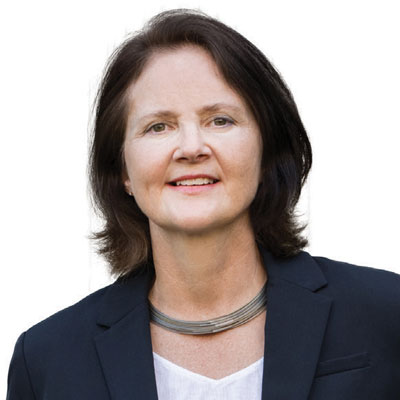
Though Tamara Konetzka, Ph.D., once imagined herself practicing international law or working in global development, formative years at a D.C.-based lobbying organization laid the groundwork for her to become a major influence here at home.
A professor of health services research at the University of Chicago, Konetzka has published more than 75 refereed studies focusing on geriatric health and the connections between payment systems and quality of care. She also has a direct role in policy making as a member of the technical expert panel that advises the Centers for Medicare & Medicaid Services on its nursing home ratings system.
And this year, she has been a sought-after voice on how to identify nursing homes most at risk for COVID-19 outbreaks and promote high-quality care in the face of daunting challenges — both health-related and financial.
“What draws my attention is the connection between policy and quality of care,” she says. “The policies that come out of Washington or sometimes states, how do they filter down (to providers)?”
That question has become a more personal one of late. Konetzka and her husband, Mike, who are parents to Margot, 15, have spent much of this year balancing working from home with caring for their aging parents remotely.
Her mother lives in a continuing care retirement community in Florida. Her mother-in-law is in a nursing home in Indiana, where she contracted COVID-19 but came through symptom-free.
“It’s all bringing it back home a little bit how hard these decisions are,” says Konetzka, 56. “I’m really an analyst at heart. I love sifting through data and solving problems. I get excited about producing research that also could produce policy changes.”
Konetzka, who is fluent in German, is also excited for a time when it’s safe to travel again. Though she built her career in the U.S., she’s been abroad many times for work and pleasure, including a three-month “mini-sabbatical” to work for the German Institute for Economics Research in Berlin.
Konetzka realized she could help translate important long-term care findings as an early-career research director for the American Health Care Association. She went back to school and wrote her dissertation on Medicare payment in skilled nursing facilities after CMS first switched to its prospective payment system. Her publication list covers most topics providers have grappled with over the last 25 years.
In May, Konetzka testified before the Senate’s Special Committee on Aging to encourage data transparency and report on one of her studies, which found nursing homes with the largest minority populations were more than twice as likely to have COVID-19 cases or deaths than those that were mostly white. Her work also found that federal star ratings were less likely to influence case numbers.
She’s now training a lens on how Medicare and Medicaid payment policies encouraging home- and community-based care may have unintended consequences on caregivers.
“I feel for too long people have proposed the idea of more funding being shifted away from institutions to community living as a panacea,” she says. “It’s just not that easy.”
Resume: 1987, Earns bachelor’s degree in political science and German literature from the University of Wisconsin-Madison; 1992, Earns master’s degree in economics from the University of Pennsylvania; 1995, Starts as researcher at American Health Care Association; 2003, Receives Ph.D. in health policy and administration from the University of North Carolina at Chapel Hill; 2004, Hired as assistant professor at the University of Chicago; 2014, Joins panel that advises CMS on Five-Star rating system; 2015, Promoted to full professor; 2018, Becomes editor-in-chief of Medical Care Research and Review.
From the September 2020 Issue of McKnight's Long-Term Care News




